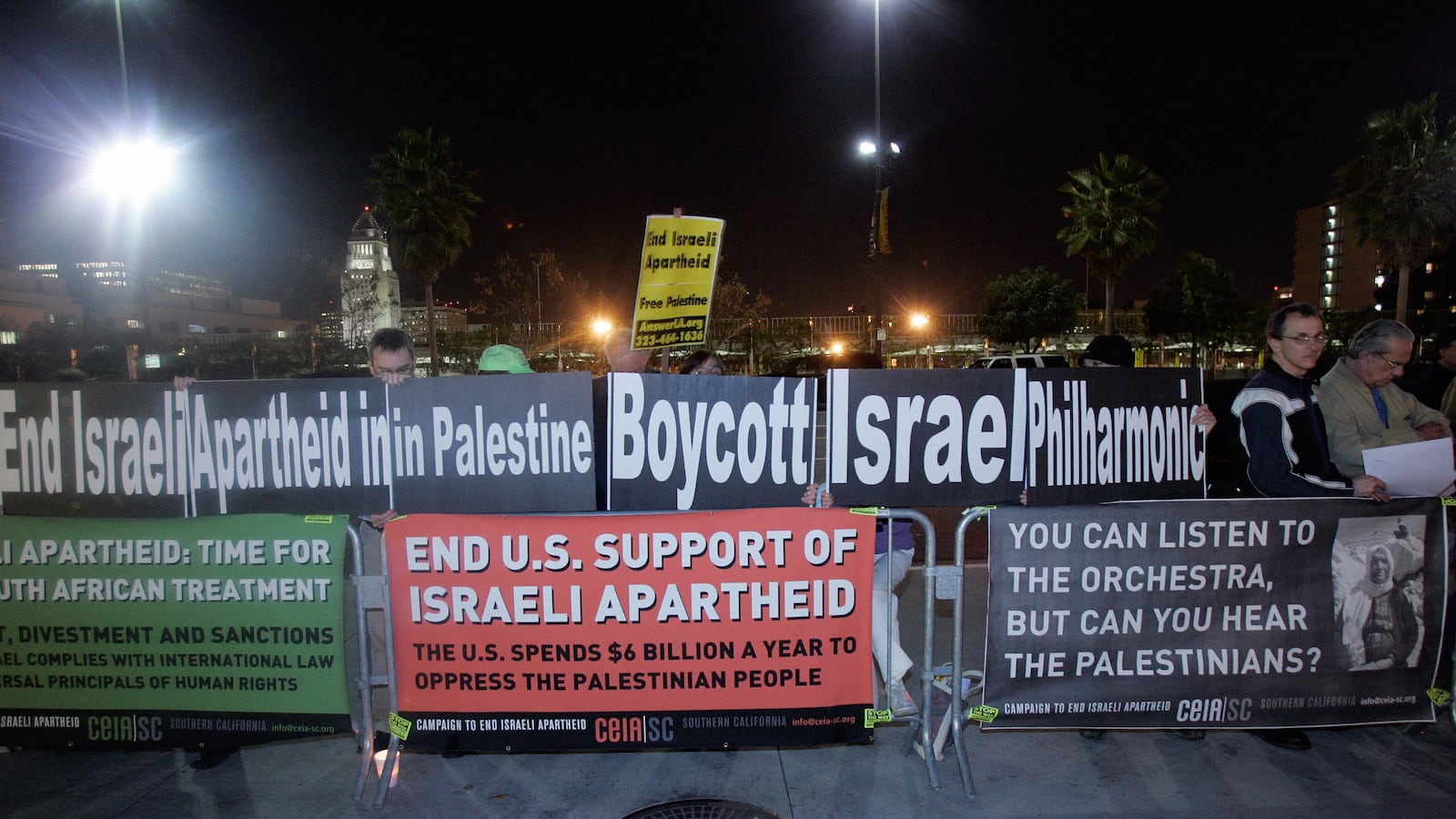For the fourth time in eight years, the Presbyterian Church rejected proposals to join the Boycott, Divestment and Sanctions (BDS) “movement,” endorsing instead engagement and peacemaking policies that have become the consensus among Mainline Protestant churches struggling for a role in Middle East peacemaking.
BDS votes have become a ritual drama at Presbyterian General Assemblies (or “GA”s, the bi-annual meetings during which church policy is voted in or out). To understand why, we first need to understand the Presbyterian Church in the US (PCUSA) and the goals and tactics of the BDS “movement” itself.

At two million members, the Presbyterian Church is the third largest Mainline Protestant denomination in the US (behind the Methodists with eight million members and Lutherans with just under four million). And like these other churches, the Presbyterians have been dealing with a set of linked crises for decades.
The first is a dramatic decline in membership (PCUSA had close to four million members in 1960) as current members age and few young people join or choose to remain in the church where they may have grown up.
Threatened by both secularism and a growing Evangelical/Fundamentalist religious movement, Mainline Protestant came together in the 1950s in ecumenical communion that put aside religious differences to increasingly focus on secular social and political issues. But as individual churches marginalized their religious differences, they also began to lose the very things that made each church spiritually unique—with secular politics unable to fill this void, accelerating declines in membership.
The second crisis Presbyterians faced was an increasing centralization of power. In theory, PCUSA is a decentralized church with individual localities (called Presbyteries) organized into Synods which cover larger geographical areas. These Presbyteries send elected representatives to a General Assembly every two years, during which church policy is set.
But as church property holdings, along with management of a growing retirement fund, created the need for professional organizational management over the years this professional staff has shown an increasing tendency to add management of theological and political issues to their portfolio.
PCUSAs professional leadership tends to travel in circles with other Mainline church leaders, and it is within this Mainline culture that hostility to Israel has hardened into doctrine.
Much of this behavior can be explained by this leadership’s choice of ecumenical partners. Most notably, the Sabeel Liberation Theology group, a Palestinian Christian organization that has been behind the bulk of church divestment activities, plays an inordinate role in setting policy within many Christian denominations.
These phenomena all came to a head in 2004 when PCUSA became the first major institution to pass a resolution calling for “phased, selective divestment” in companies doing business with Israel. When voters at the 2004 General Assembly passed this measure, it seemed like just one of many anti-Israel votes that were already becoming part of the PCUSA General Assembly catechism. But the voters failed to take into account the true nature of BDS.
The “BDS” campaign began in 2002 at the now-notorious Durban I conference where political NGOs met and decided to organize around what they called “The Apartheid Strategy,” an attempt to “brand” Israel the new South Africa,
In order to be effective, the campaign required alliances with large and respected organizations that could allow BDS activists (whose power and influence have always been marginal) to punch above their limited political weight.
This process often involved “bait-and-switch” tactics in which boycott or divestment proposals were presented as minimal (“we’re only targeting these few specific companies” or limited “we’re targeting the Occupation, not Israel”). But as the Presbyterians learned in 2004, once a church or other institution comes on board, the message delivered to the world is far more stark and simple: that the Presbyterians agree that Israel is an Apartheid state—you should join the church and also divest.
Church members, appalled at what was being said in their name, rescinded their divestment policy in 2006. But that has not stopped divestment advocates within the church, backed by leaders whose commitment to BDS has never wavered, from bringing the issue up again and again at every General Assembly since.
Until now, it’s been the people in the pews who have refused to allow this small group of partisans to hijack the reputation of the church for their own political gain. And given BDS’s ten-year losing streak in every category of targeted institution (colleges, universities, municipalities, unions and retailers), common sense seems to have prevailed.





